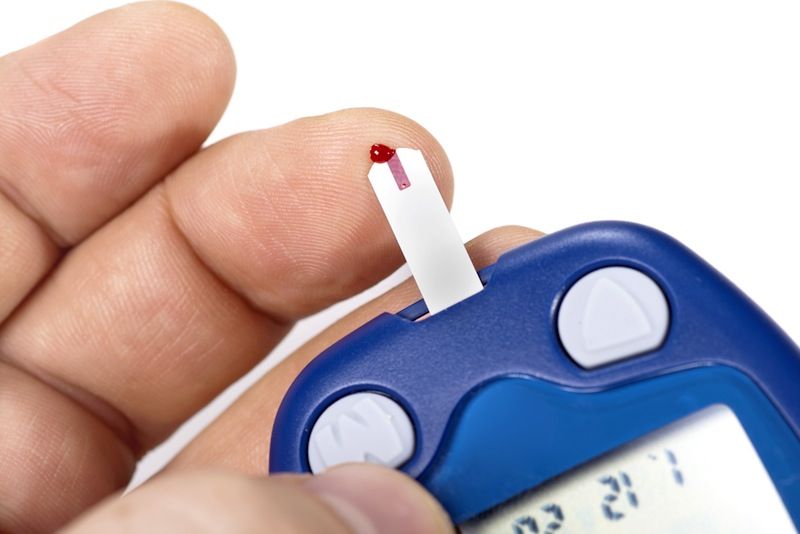Introduction
Blood glucose is a sugar. The bloodstream carries it to all cells in the body to supply energy. Sugar is obtained from the diet. The blood glucose must remain stable in order to support vital bodily functions.
Blood glucose levels change throughout the day such as after eating, levels rise and then settle after about an hour. To reduce the risk of diabetes and heart disease, a person needs to keep blood sugar levels within a safe range.

What is a normal blood sugar level?
Blood sugar levels can either be normal, high, or low, depending on how much glucose someone has in their bloodstream. When someone fasts, eats, or after they’ve eaten, normal blood glucose levels can be measured . A normal blood glucose level for adults who do not have diabetes, who haven’t eaten for at least eight hours (fasting) is less than 100 mg/dL. While a normal blood glucose level for adults who do not have diabetes, two hours after eating is 90 to 110 mg/dL.
According to the Clinical Practice Guidelines Management of Type 2 Diabetes Mellitus, the normal blood sugar level is 4.4mmol/L to 7.0mmol/L for fasting and 4.4mmol/L to 8.5mmol/L two hours after food.
It is 3.5 mmol/L to 5.1 mmol/L for fasting and 4.0 mmol/L to 6.7 mmol/L two hours after eating for pregnant women.
Normal and diabetic blood sugar ranges
- For the healthy individuals, normal blood sugar levels are as follows:
- Between 0 to 5.4 mmol/L (72 to 99 mg/dL) when fasting
- Up to 8 mmol/L (140 mg/dL) 2 hours after eating
- For people with diabetes, blood sugar level targets are as follows:
- Before meals : 4 to 7 mmol/L for people with type 1 or type 2 diabetes
- After meals : under 9 mmol/L for people with type 1 diabetes and under 8.5mmol/L for people with type 2 diabetes
Factors affect blood sugar levels
Many factors affect blood sugar levels:
- Type of food consumed, how much, and when
- Physical activity
- Medications
- Medical conditions
- Age
- Stress
- Dehydration
- Illness
- Menstrual periods
- Alcohol
How to maintain normal range for blood sugar?
This will depend on the type of diabetes. Type 1 diabetics need insulin. For those with type 2, if they control their diet but still cannot achieve normal blood sugar levels, they will need medications.
For pregnant women with gestational diabetes, they can try and control glucose levels through diet, but if this is not effective, then they will need medications too.
Other tips include:
-
Exercise regularly
Regular exercise can help us get to and maintain a moderate weight. At the same time it will increase insulin sensitivity which means our cells are better able to use the available sugar in our bloodstream. Exercise also helps our muscles use blood sugar for energy and muscle contraction.
2. Manage your carb intake
Carbs break down into sugars in our body and then insulin helps our body use and store sugar for energy. When we eat too many carbs or we have problems with the insulin, this process fails, thus blood glucose levels will rise.
3. Increase your fiber intake
Fiber promotes a more gradual rise in blood sugar levels as it slows carb digestion and sugar absorption.
4. Drink water and stay hydrated
Drinking plenty of water not only keeps our blood sugar levels within a healthy limit. Besides, it may help to prevent dehydration and at the same time it helps our kidneys flush out the excess sugar through urine.
5. Manage stress levels
Glucagon and cortisol hormones can cause blood sugar levels to rise. They are secreted during stress which means stress can affect our blood sugar levels.
6. Monitor your blood sugar levels
Do body checkup and keep track of our blood sugar levels to see what makes them go up or down.
7. Get enough quality sleep
Blood sugar levels and insulin sensitivity can be affected by poor sleeping habits and a lack of rest. Sleep deprivation increases cortisol levels. Sleep plays an essential role in blood sugar management.
8. Maintain a Moderate Weight
Ideal weight promotes healthy blood sugar levels and helps reduce risk of developing diabetes.
Conclusion
Everyone should aim to achieve normal blood sugar levels and keep the levels within a healthy range. For those without diabetes, it is a preventive measure, while for those with diabetes, they need to do this to prevent complications.

Carl Clay is a health blog author who has been writing about nutrition, fitness and healthy living for over 10 years. He also loves to run, hike and bike with her wife.












